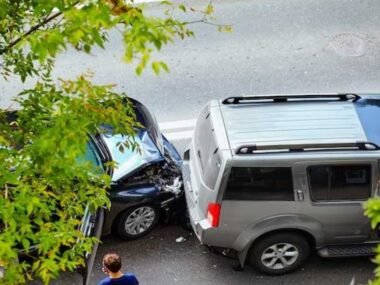Do you know what legal protections you have when defending yourself within the state of Colorado?
Misunderstanding self-defense laws could result in serious legal consequences because their complexity often leads to confusion. Numerous Colorado residents face criminal charges annually because they lack understanding of the legal conditions for self-defense.
The good news?
Knowledge of Colorado self-defense laws helps you protect yourself physically and legally. Understanding self-defense laws creates a crucial boundary between justified protection and facing criminal charges.
When facing self-defense charges you should always consult with an experienced criminal defense attorney in Denver, CO because they offer situation-specific guidance.
What you’ll discover:
- Colorado’s Stand Your Ground and Castle Doctrine
- When Force Is Justified in Colorado
- Limitations on Self-Defense Claims
- Legal Consequences of Improper Self-Defense
Colorado’s Self-Defense Laws: The Basics
The self-defense statutes of Colorado uphold your essential right to defend yourself as well as your family members and property when they are under threat. It remains essential to determine both the timing and extent of force you’re permitted to use by law.
Colorado follows “Stand Your Ground” principles allowing you to use force without retreating in certain circumstances unlike some states that mandate retreat before force use.
Here’s what that means:
- Physical force becomes permissible when there’s a reasonable belief that you face imminent danger.
- You have no obligation to withdraw before applying force in many circumstances
- Deadly force is legally permissible when you have a reasonable belief that you face a threat of death or serious bodily harm.
But here’s the important part…
Your defense should match the level of danger you face. Engaging in excessive force during self-defense situations can lead to criminal charges.
According to recent legislative changes, Colorado’s approach to self-defense continues to evolve, with Senate Bill 24-131 aiming to restrict firearms in “sensitive places” such as parks and places of worship.
When Force Is Justified in Colorado
Colorado law demands an understanding of specific legal concepts to determine when you can lawfully use force for self-defense.
You may use physical force within Colorado when:
- You have a reasonable expectation that you will soon experience unlawful physical force.
- Legal protection allows the use of force to defend your property if someone attempts unlawful entry or damage.
- You must take action to protect another person if you have a reasonable belief that they face imminent danger.
Colorado’s self-defense laws frequently contain the term “reasonably believe,” making it essential to comprehend its meaning.
The actual presence of danger doesn’t matter because the key factor is whether a reasonable person in the same situation would have felt threatened.
Evaluation of your response depends on your reasonable beliefs at that time instead of any later discoveries.
Colorado’s Castle Doctrine: Defending Your Home
The “Castle Doctrine” under Colorado law gives you enhanced protection when defending your home.
The Castle Doctrine establishes enhanced protection rights for your home because your home serves as your castle. Colorado law presumes you have reasonable fear of imminent death or serious bodily injury when an intruder enters your home without permission.
This means:
- Under certain conditions Colorado law allows homeowners to use deadly force against intruders who enter their homes.
- Retreat is not necessary when facing an intruder in your home even when the option to retreat exists.
- The legal presumption is in your favor
But there are important limitations:
- The intruder needs to be in the act of illegal entry or has already completed an illegal entry.
- Your belief that the intruder plans to commit a crime beyond just entering your home is essential for self-defense claims.
- Law enforcement officers carrying out their official duties are not covered by this doctrine.
The new Colorado gun law necessitates firearm storage in locked containers in vehicles beginning 2025 which may affect self-defense weapon accessibility.
Limitations on Self-Defense Claims
Colorado law supports self-defense rights but includes several important limitations that people must understand.
Self-defense cannot be claimed if:
- You’re the initial aggressor (with some exceptions)
- You’re engaged in an illegal activity
- Colorado law does not protect those who respond with physical force to verbal provocation alone.
- Force application at the end of the threat period disqualifies self-defense claims.
You forfeit your self-defense claim if you caused the conflict unless you demonstrate your withdrawal and tell the other person you’re backing down.
Research findings show that individuals who possess concealed carry permits exhibit more law-abiding behavior than the average citizen because they are 39 times less likely to face arrest.
Use of Deadly Force in Colorado
Under Colorado law what circumstances allow for the legal use of deadly force? The most critical factor in self-defense law relates to when deadly force can be used because failure to understand this can result in serious consequences.
Colorado law permits deadly force only under specific conditions.
- You have a reasonable belief that death or serious bodily harm is about to occur to you.
- You have reasonable belief that lower force options will fail to protect you.
- The situation demands immediate action because the threat exists right now
Many people mistakenly believe deadly force can be used for property protection. The laws of Colorado generally prohibit the use of deadly force to defend property except when protecting a home under the Castle Doctrine.
Gun-free zones serve as targets for mass shooters since 86% of mass public shootings between 2009 and 2016 happened in these locations.
Self-Defense Outside the Home
Colorado self-defense regulations apply outside your residence yet vary based on geographical location.
You possess the right to defend yourself without first retreating when you are in public spaces if you are legally present there and not involved in any illegal activity while believing force is necessary to avoid immediate harm.
The legal standard for “reasonableness” faces stricter enforcement in public locations than within your own home. The courts will conduct a thorough assessment to determine if your belief about the necessity for self-defense actions was reasonable.
Colorado law extends the protective measures of the Castle Doctrine to your vehicle since it treats your vehicle as a home extension while you are inside it.
Legal Aftermath of Self-Defense Incidents
Legal justification for self-defense does not eliminate potential legal consequences and subsequent processes you must face.
The following steps generally occur after someone defends themselves in a confrontation:
- Police investigation
- Police might arrest you and file charges even if you think you acted in self-defense.
- Prosecutor’s determination of whether to pursue charges
- Trial (if charges are pursued)
In this legal procedure the self-defense claim functions as an “affirmative defense” which involves you admitting to the act while asserting that it was legally justified.
After any self-defense event it is vital to promptly request legal representation then use your right to silence until your lawyer arrives while documenting all relevant details you recall.
Gun rights organizations are mounting legal challenges to Colorado’s new laws because they believe these regulations violate Second Amendment rights.
Wrapping It All Up
Colorado’s self-defense laws create critical protections for people defending themselves as well as their family members and possessions. These protections include important responsibilities and limitations that must be considered.
The key takeaways from this guide are:
- The law typically allows individuals to stand their ground and defend themselves instead of withdrawing.
- The Castle Doctrine extends greater protection for homeowners.
- Your defensive reaction should match the level of threat you encounter.
- The use of deadly force remains justified solely when faced with threats that could result in death or serious bodily harm.
When you have to use self-defense in a situation you should immediately contact a qualified criminal defense attorney for legal representation.










